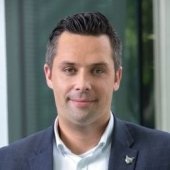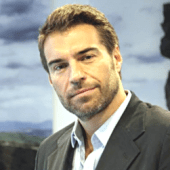University of Pretoria professor: Reskilling critical to career survival for 4IR workforce
IN BRIEF
- The University of Pretoria recently launched its Centre for the Future of Work to research the emerging world of work as various megatrends sweep across the world.
- In an ever-changing information society, acquiring the habit of lifelong learning is not only desirable in the pursuit of knowledge, but is also necessary for career survival.
- We have a responsibility to ensure that the youth of this continent, brimming with promise, are appropriately skilled and equipped for the future.
The year 2030 may seem far off but given this year’s first-year students at the University of Pretoria will still be in the early stages of their career by then, the future of work is already very much upon us. As a university, we see it as our priority to do everything we can to equip and prepare our graduates for what appears to be a precarious path into a labour market full of complexity and uncertainty.
Given that there can be no more significant dialogue of our time, the University of Pretoria recently launched its Centre for the Future of Work to research the emerging world of work. Having evolved out of numerous think-tank sessions over the past few years, the vision for this centre of excellence is to advance the knowledge field of the future of work in order to prepare the next generation of motivated, successful employees—to the benefit of South Africa, the continent of Africa, and frankly, the rest of the world.
At this critical juncture in history, as the Fourth Industrial Revolution (4IR) unfolds with disruption and opportunity for innovation, this quote from Lewis Carroll’s Alice’s Adventures in Wonderland seems appropriate: ‘In this world you have to run as fast as you can just to keep still.’
Technology Equals Opportunity
Certainly, technology is giving us opportunities as never before, transforming every sector, including the world of work. Who would have imagined that specialist physicians in the United States who hologram themselves into a rural hospital in Ulundi and instruct robots to perform complicated, life-saving surgery on a patient would be an imminent reality, rather than the stuff of science fiction?
The next generation of workers need to keep pace with breakthroughs in fields including robotics, artificial intelligence, nanotechnology, the internet of things (IoT), quantum computing and biotechnology. They need to be adept with fundamental and foundational skills in mathematics, stochastics, programming, electronics, problem solving, critical thinking and design, which will be applied in a new 4IR work environment.
Tomorrow’s workers across all disciplines will need to be digitally literate. Given the limitations of machine learning, especially with regard to managing challenges associated with judgement, decision-making and interpretation, the humanities and the arts will continue to play an important role in shaping tomorrow’s workforce, recognizing that creativity is at the heart of all innovation.
The next generation of workers needs to keep pace with breakthroughs in fields including robotics, artificial intelligence, nanotechnology, the internet of things (IoT), quantum computing and biotechnology.
A 4IR Toolkit for Tomorrow
In a recent think-tank session and discussion at the centre with several university alumni who are business leaders in various fields, several key themes emerged about the workforce of tomorrow and the 4IR.
The ability to learn, unlearn and relearn will be a critical skill for the future. In an ever-changing information society, acquiring the habit of lifelong learning is not only desirable in the pursuit of knowledge, but is also necessary for career survival. Given that the skills needed for a worker’s first job will become obsolete rather quickly, constant re-skilling will be required.
At least half of all occupations will most likely require a major skills overhaul, while some jobs—for example, a receptionist, farmer or traditional accountant—will most likely become redundant. There will be new jobs in new fields such as augmented reality, big data science and robotic deep mining. Many traditional jobs like engineers and medical professionals will require vastly different skills. The next generation of workers face a future filled with lots of uncertainty. As a result, flexibility will be important as the gig economy will continue to gain prominence. This evolution will be driven by necessity, due to job scarcity, as well as by the fact that it allows for a more balanced and flexible life, which is preferred by Generation Y and Generation Z. Unfortunately, it doesn’t offer stable income or benefits typical to corporates, such as sick or maternity leave, or promotion prospects.
Entrepreneurship and Africa’s Future
Given South Africa’s startlingly high youth unemployment rate, which reached a record high of 46.3% in 2021, entrepreneurship is encouraged as a major driver of job creation and innovation. Starting and growing one’s own business requires a whole different set of skills, and there are various opportunities for training at the University of Pretoria and other institutions.
The 4IR presents an opportunity for Africa. With the world’s youngest and largest growing population—about one third of the global population by 2100—the future of the world hinges on the future of Africa. We have a responsibility to ensure that the youth of this continent, brimming with promise, are appropriately skilled and equipped for the future.
Of course, there are considerable obstacles to overcome to unlock the potential of Africa and enable our young people to flourish. Perhaps what I have found most encouraging recently was the sentiment that emerged through a series of campus interviews with students regarding the future of work. Many expressed the desire to be employed by organisations with a purpose—those that helped those who are less privileged. With South Africa being the most inequitable country in the world, work that helps others rise up and get work themselves is meaningful indeed. What better future workforce could we hope for than one which consists of socially conscious, active citizens who address societal issues and positively impact our communities?
The 4IR presents an opportunity for Africa. With the world’s youngest and largest growing population—about one third of the global population by 2100—the future of the world hinges on the future of Africa.




























